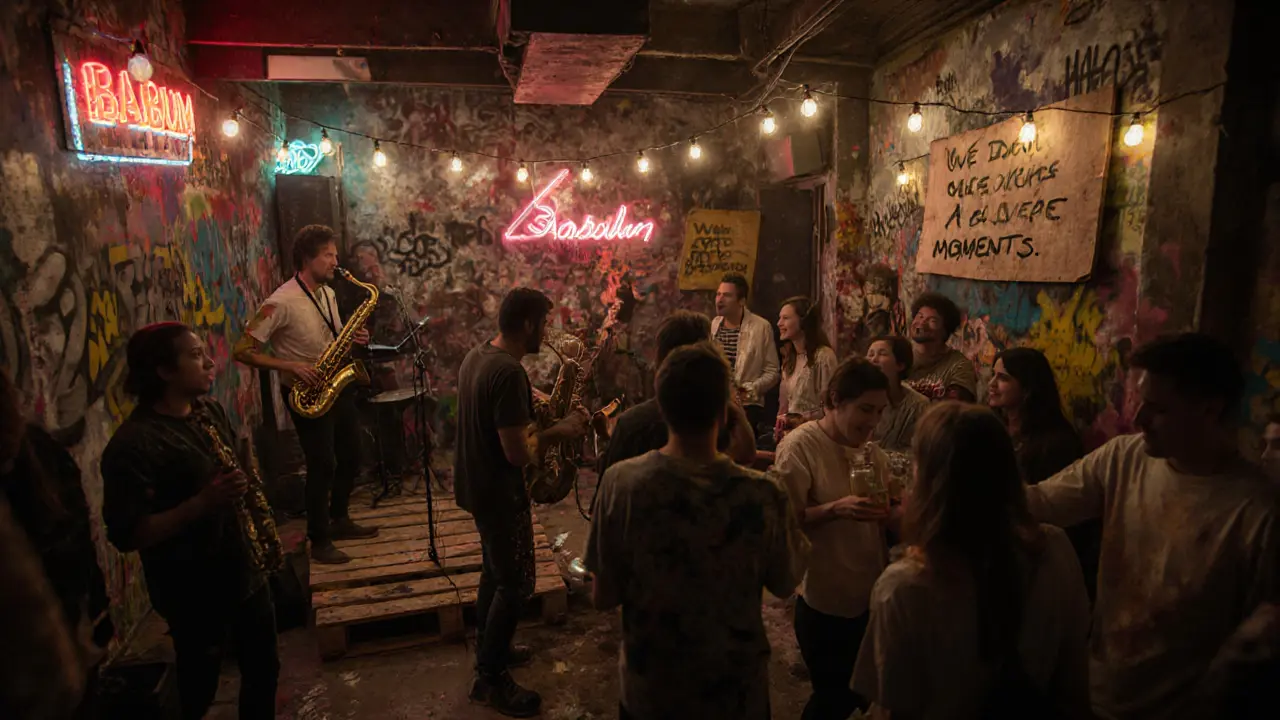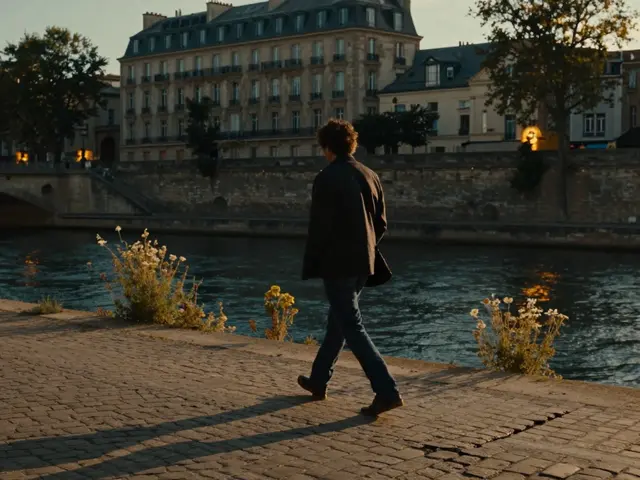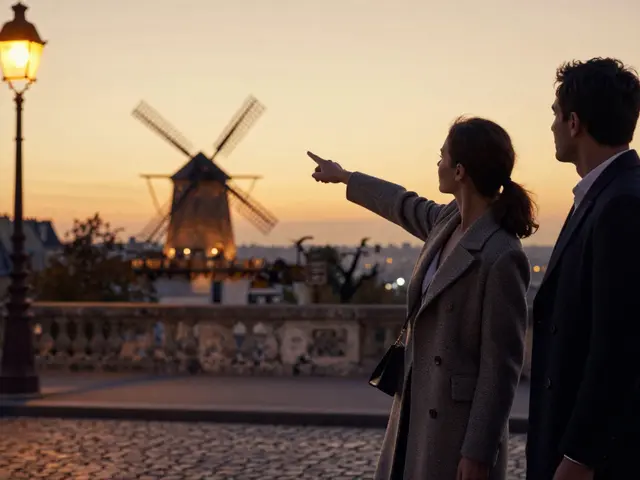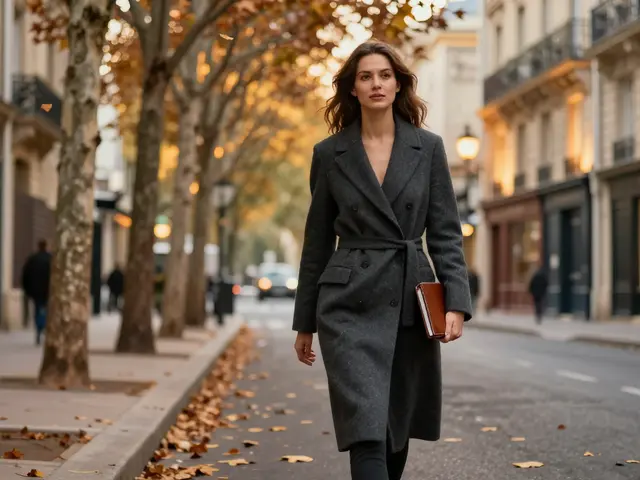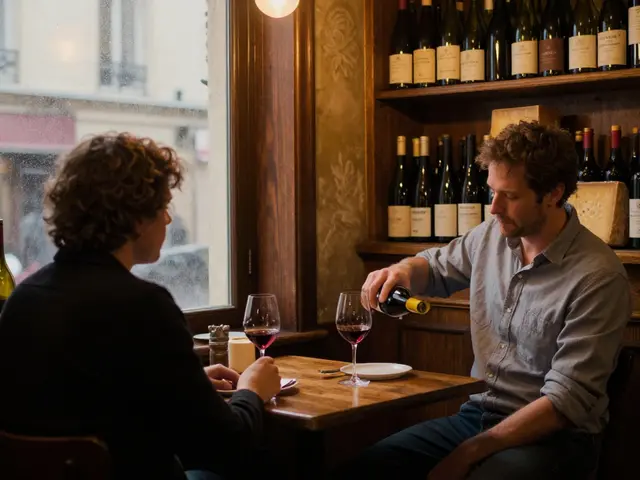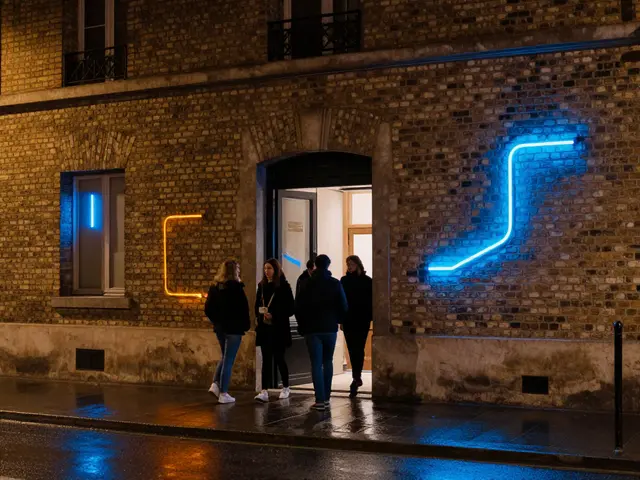Badaboum Paris doesn’t look like a club. Not at first glance. Tucked into a narrow alley near Canal Saint-Martin, it’s a converted warehouse with flickering neon signs, mismatched furniture, and walls covered in graffiti that changes every month. There’s no bouncer in a suit. No velvet rope. No cover charge on Tuesdays. And yet, by 11 p.m., the place is packed - not with tourists in matching outfits, but with artists, musicians, poets, and people who just want to feel something real.
It’s Not a Nightclub. It’s a Feeling.
Badaboum Paris doesn’t advertise. It doesn’t have Instagram influencers posing under disco balls. You hear about it from a friend who whispered, “Go after midnight. Bring someone you don’t know well.” The music shifts constantly - one night it’s lo-fi French hip-hop with live sax, the next it’s a DIY synth-punk band from Lyon playing on a stage made of wooden pallets. The DJ doesn’t use Serato. They use a laptop, a USB stick, and a playlist made from tracks they downloaded off Bandcamp or recorded themselves at home.
There’s no VIP section. No bottle service. No one wearing designer sunglasses indoors. The bar serves cider from a small organic farm in Normandy, cheap red wine in mason jars, and a house cocktail called the “Rouge du Canal” - gin, blackberry syrup, and a splash of vinegar. It tastes like rebellion.
Where the Real Paris Lives
Most people think of Paris as cafés, croissants, and the Eiffel Tower. But the city’s heartbeat lives in places like Badaboum - where creativity isn’t curated for tourists, but born from boredom, frustration, and late-night conversations in broken English and French. It’s the kind of place where a 19-year-old from Marseille drops in with a handmade zine, and by the end of the night, three people are printing copies on the old printer in the back room.
Badaboum opened in 2018 after a group of friends lost their squat in the 10th arrondissement. Instead of giving up, they rented this space for €800 a month and turned it into a self-run cultural hub. No investors. No sponsors. Just a sign that says, “We don’t serve drinks. We serve moments.”
Music That Doesn’t Care About Charts
The sound at Badaboum isn’t chosen by algorithms. It’s chosen by people who actually listen. One week, you might catch a solo artist from Senegal playing a kora with a loop pedal. The next, a local collective called Les Fous du Son plays ambient noise made from recordings of Paris metro doors, rain on metro tiles, and old typewriters. No one records it. No one uploads it. You had to be there.
They’ve hosted underground concerts by bands that never made it to Spotify. One of them, La Chambre des Miroirs, played three shows at Badaboum before vanishing. Their only album? A burned CD left on the bar for €5. You can still find it if you ask nicely.
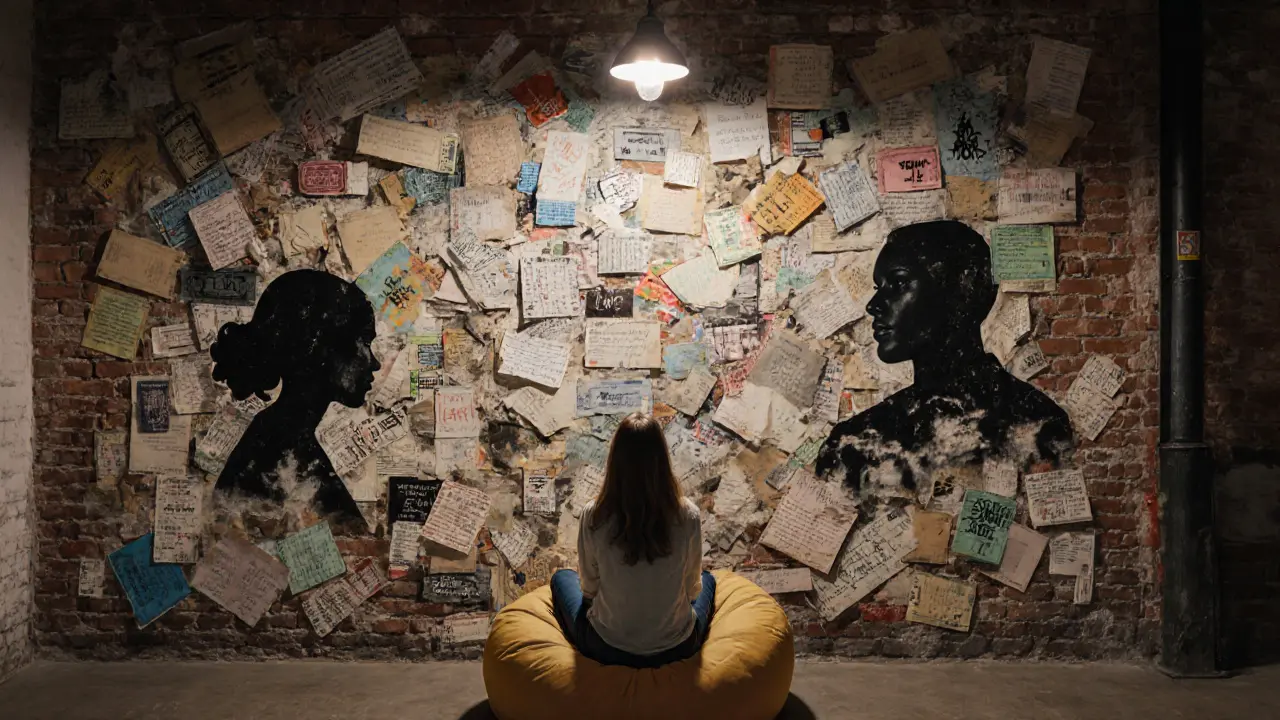
Art That Doesn’t Need Approval
The walls aren’t white. They’re never empty. Every few weeks, a new artist is invited to take over a wall - no theme, no brief, no approval process. One month, it was a 72-hour mural painted by a group of teens who didn’t speak French. The next, it was a collage made from ripped-up subway tickets and old love letters found in a thrift store.
There’s no gallery label. No price tag. You can’t buy it. You can only take a photo, or sit in front of it and think about what it means. A lot of people do.
Why It Still Exists
Paris has changed. Rent in the 10th has doubled since 2020. Chains have moved in. Co-working spaces replaced bookshops. But Badaboum survived because it refuses to be a business. It’s a collective. Everyone who works there volunteers - bartenders, sound techs, cleaners. They get free drinks, a place to crash if they’re broke, and the chance to play their music or show their art.
They don’t have a website. Their social media is a single Instagram account with 12,000 followers - mostly locals who show up because they know the next thing will be unexpected. No posts are scheduled. No captions are written. Just a photo, sometimes blurry, with the words: “Tonight. 11 p.m. Bring your own chair.”
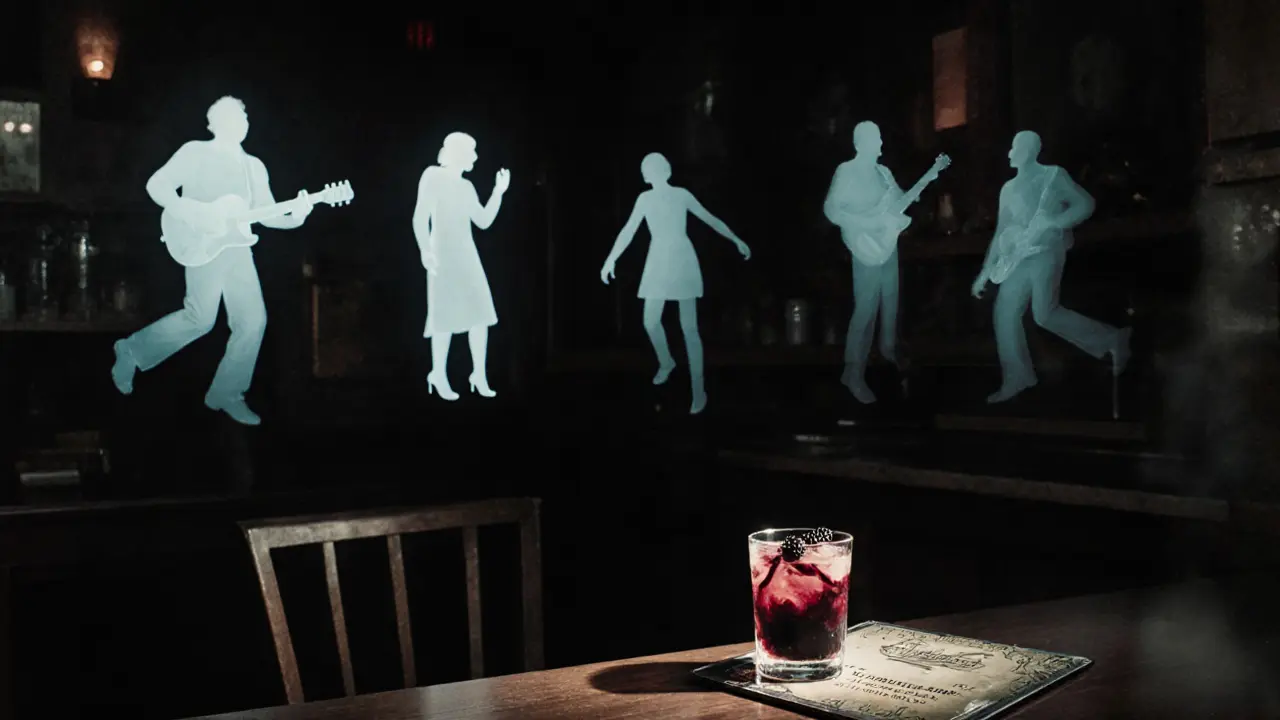
What Happens When You Go
If you go on a Tuesday, you might find a poetry slam where the winner gets a handmade ceramic mug. On Friday, there’s a silent disco with three different playlists - one for people who want to dance, one for people who want to cry, and one for people who just want to sit in the corner and smoke.
You won’t see anyone checking their phone for the time. Phones are banned after 1 a.m. - not because it’s a rule, but because everyone just… stops. It’s quiet. The music fades. Someone starts singing off-key. Someone else joins in. No one cares if they’re good. That’s not the point.
By 3 a.m., the lights are dim. The bar’s closed. But people are still there - lying on beanbags, talking about dreams, failures, the city, and what they want to build next. No one leaves right away. They don’t want to.
It’s Not for Everyone
If you’re looking for a night out with a playlist you already know, Badaboum isn’t for you. If you want to be seen, to post pictures, to get tagged - go somewhere else. This place doesn’t care about your followers. It cares about your presence.
It’s messy. It’s loud. It’s unpredictable. But it’s alive in a way most clubs stopped being years ago. You won’t find a Badaboum in any travel guide. You won’t find it on TikTok trends. You’ll only find it if you’re willing to wander off the map.
And that’s exactly why it still exists.
Is Badaboum Paris open every night?
No. Badaboum Paris doesn’t have a fixed schedule. It opens when there’s something happening - usually on Tuesdays, Fridays, and weekends. The best way to know is to check their Instagram, but even that’s unreliable. Many events are announced only by word of mouth or last-minute flyers posted around Canal Saint-Martin.
Is there a cover charge at Badaboum Paris?
Usually not. On most nights, especially during the week, entry is free. Sometimes, for special performances or artist showcases, they ask for a voluntary donation of €5-€10. That money goes straight to the performers. There’s no set price, no ticket system. You pay what you can - or nothing at all.
Can I bring my own drinks to Badaboum Paris?
No. Outside alcohol isn’t allowed. But the bar offers cheap, locally made drinks - cider, wine, and house cocktails - all priced under €7. They support small producers and don’t carry big-brand liquor. If you’re looking for a vodka soda, you won’t find it here. But you might find something you’ve never tasted before.
Is Badaboum Paris safe for solo visitors?
Yes. The crowd is mostly locals, artists, and travelers who value authenticity over spectacle. The space is small and tightly knit - people look out for each other. There’s no aggression, no pressure. If you’re alone, you’ll likely be invited to sit down, share a drink, or join a conversation. It’s one of the few places in Paris where being alone doesn’t feel lonely.
What’s the dress code at Badaboum Paris?
There isn’t one. People show up in everything - vintage jackets, ripped jeans, formal dresses, hoodies, or even pajamas. The only rule is: don’t dress to impress. Dress to feel comfortable. The people who care about how you look are already somewhere else.
How do I find Badaboum Paris?
It’s at 52 Rue de la Fontaine au Roi, in the 11th arrondissement. Look for a narrow alley between a laundromat and a secondhand bookstore. There’s no sign out front. Just a small red door with a brass knocker shaped like a mushroom. If you’re unsure, ask anyone standing outside with a cigarette - they’ll point you to the right door.

